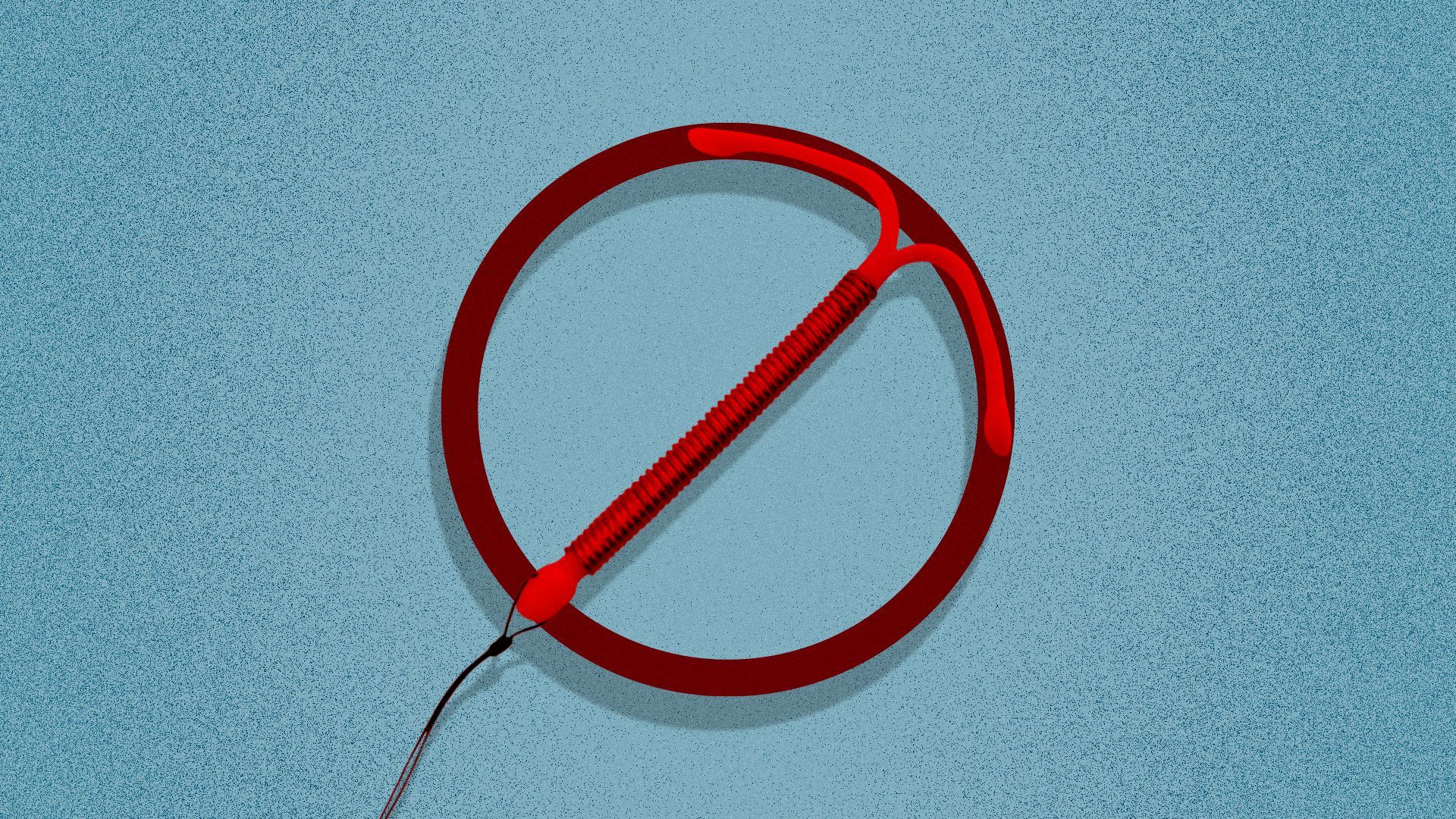| Democrats' anxiety over access to birth control is peaking as more red states attempt to adopt restrictions on emergency contraception and IUDs and could move to potentially ban them, Axios' Oriana Gonzalez writes. The big picture: Congressional Democrats are trying to codify some Supreme Court precedents addressing contraception, anticipating the court's 6-3 conservative majority could overturn them in a future term, said Kaiser Family Foundation senior vice president Alina Salganicoff. What they're saying: "We've had, for years, an effort by abortion opponents to conflate contraception with abortion, and we've seen it specifically around emergency contraception and IUDs" said Elizabeth Nash, lead state policy analyst for the Guttmacher Institute, a research organization that supports abortion rights. By the numbers: Nine states have restrictions on emergency contraception, including allowing insurance companies to decline to cover it and letting pharmacists opt out of dispensing it on religious or moral grounds, per Guttmacher. - 12 states have laws that let some health care providers refuse to provide services related to contraception based on their personal beliefs.
What we're watching: States with restrictions could go further if the Supreme Court overturns decisions that protect contraception access. - Since contraceptives are FDA-approved, it may be difficult for states to make them illegal.
- They could make it more difficult to access them through age restrictions, limiting public funding and the amount of information available around contraception.
Go deeper. | 







No comments:
Post a Comment